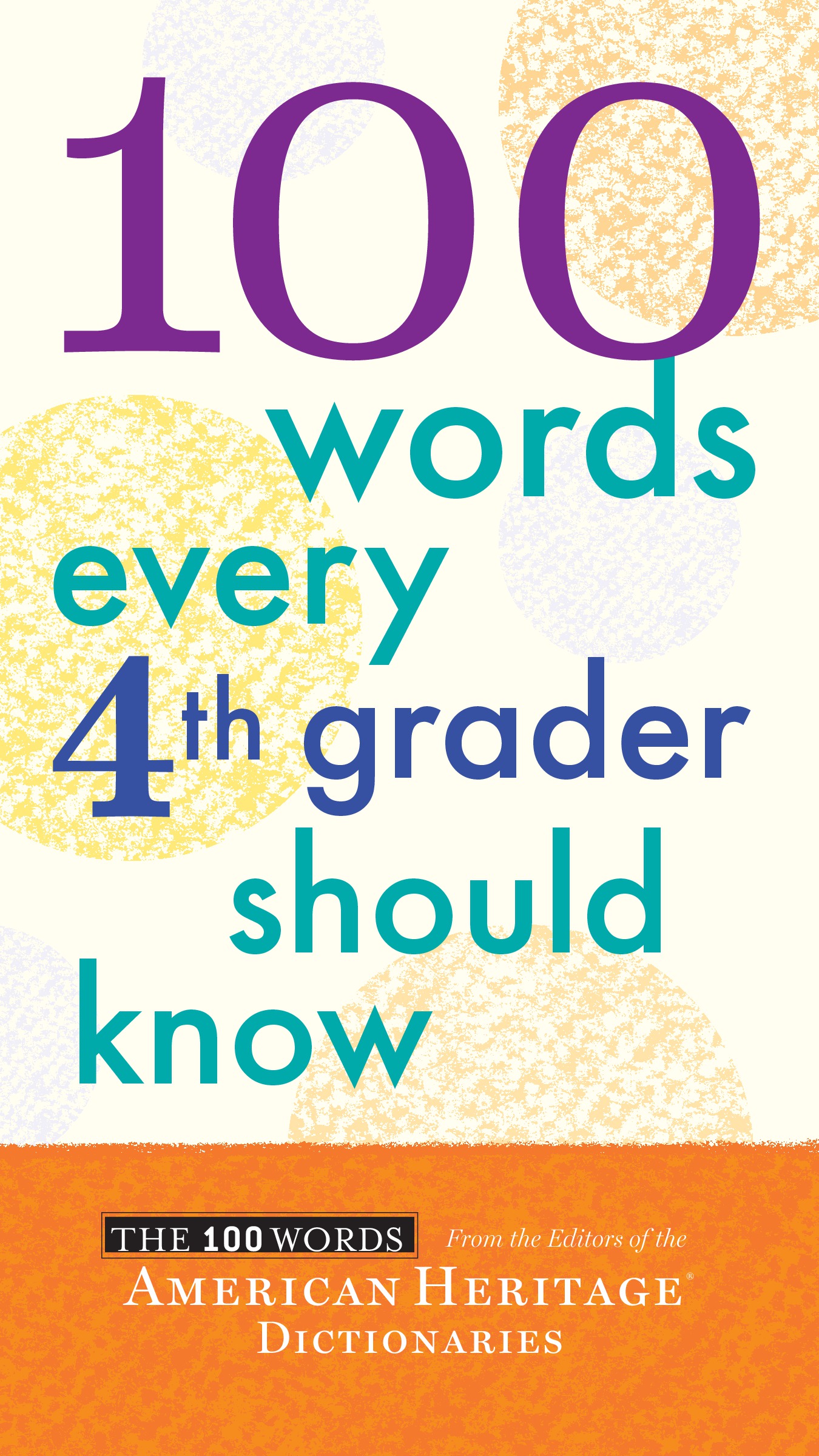
Okay everyone, put your dictionary apps away. It’s time to see if you have the vocabulary prowess (n., exceptional ability) that a well-read 10-year-old should, at least according to the folks who publish the American Heritage Dictionary. Don’t be bashful. My brave little cousin Annie already went first.
The words come from the latest in a long series of “100 Words” books published by Houghton Mifflin Harcourt. They’ve compiled 100 words that high-schools students should know, that foodies should know and even a list that, allegedly, will “Make You Sound Great.” The newest edition, available March 4, is geared toward fourth-graders, the same age group that the federal government tests on vocabulary in the annual National Assessment of Educational Progress.
That is not, however, why the publishers chose that grade level. Steve Kleinedler, executive editor for American Heritage dictionaries, says fourth-graders are the youngest group that wouldn’t fall into a deep sleep at the sight of a neutral-toned, illustration-less book—and that have a wide enough vocabulary for editors to have decent range in defining aspirational words. To compile the list, Kleinedler says his team consulted children’s books publishers, pored over kids’ literature and dug through glossaries for textbooks in science and social studies.
How on point are the words? Given that my cousin Annie is currently in the middle of fifth grade, and has thus recently completed the grade in question, I figured she would be a good test subject to find out how challenging the words are for someone that age and whether she had indeed encountered them often enough to know them (the back cover promises this is “vocabulary that upper elementary students commonly encounter in their reading and on standardized tests.”)
Here are some of the words that she had the gist of, including a few of her more adorable definitions:
She made some fine, precious guesses on other words like headstrong (“you’re smart?”), and there were others that she threw up her hands on, like compassion, cringe, foliage, grimace, ravine and vital.
Given the results of the national standardized vocabulary test administered to fourth-graders and eighth-graders, it would be shocking if any fourth-grader could steamroll through all those words. The results released in 2012 showed generally low levels of performance, with the highest performers getting less outstanding year over year. “We should be worried about this,” one of the test’s overseers told the Huffington Post. Fourth-graders, on average, got 218 out of 500 possible points. “There is the expectation that students would know all of the words that were assessed,” she said.
Those 9- and 10-year-olds, from private and public schools across the country, were quizzed on words like created, spread, outraged and puzzled. Grimace, one of the words from the book with which Annie wasn’t familiar, was actually on the eighth-graders’ test—and was one of the unfortunately limited words that at least 75% of them understood.
Kleinedler says he expects that parents who buy this book will likely be the type “who have already motivated their child to be actively literate.” Hopefully, in some cases, he’ll be wrong. But a good way to teach a child new words, he says, is to simply keep a log of yet-to-be-learned terms that parents and little ones encounter together in the world. “I think there’s always room for improvement,” he says.
And even he is not infallible. When given a dose of his own medicine in the form of a pop quiz, the lexicographer first defined unscrupulous as “not having scruples” before eventually pulling out “not playing fair or by the rules.” You know, like dastardly rapscallions. Or crooked pollywogs. Or a plain old snollygoster! (See kids, new words can be fun and good for classroom-safe trash-talking.)
This is an edition of Wednesday Words, a weekly feature on language. For the previous post, click here.
More Must-Reads From TIME
- The 100 Most Influential People of 2024
- The Revolution of Yulia Navalnaya
- 6 Compliments That Land Every Time
- What's the Deal With the Bitcoin Halving?
- If You're Dating Right Now , You're Brave: Column
- The AI That Could Heal a Divided Internet
- Fallout Is a Brilliant Model for the Future of Video Game Adaptations
- Want Weekly Recs on What to Watch, Read, and More? Sign Up for Worth Your Time
Contact us at letters@time.com